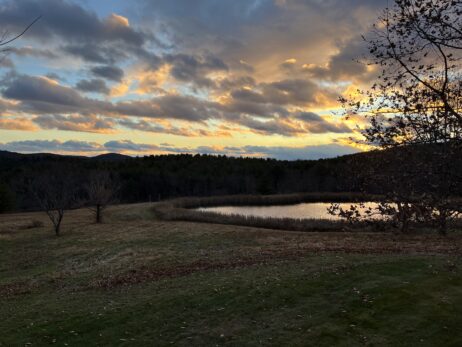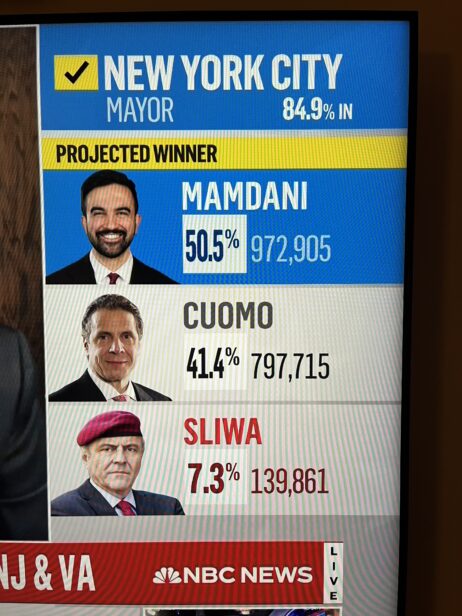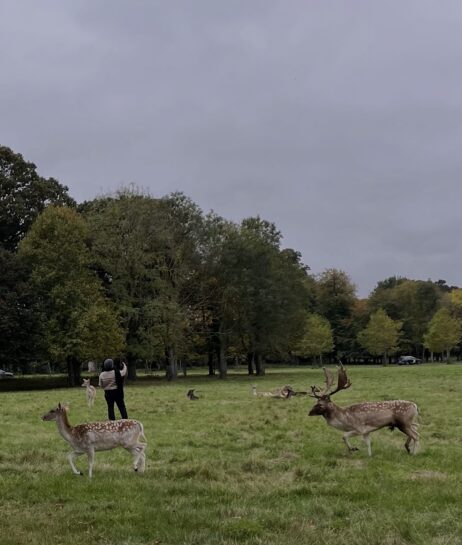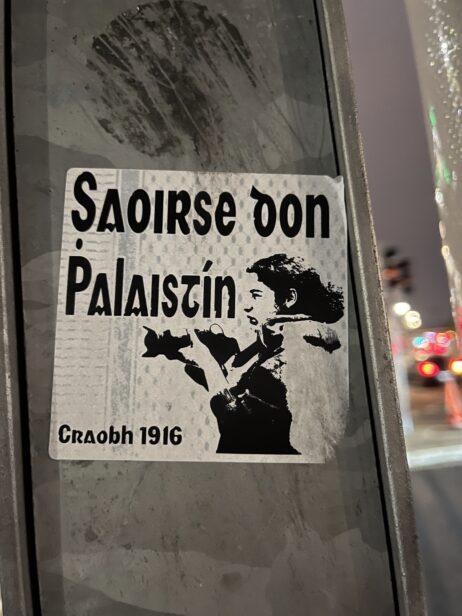Stewing and Knitting

January was a tumultuous and disturbing month: field executions in the streets of Minneapolis; ICE and CBP running amok in Minnesota, Maine, and elsewhere; the continuing retail slaughter in Gaza; and Jared Kushner’s hideous plans for the same, to name just a few of the outrages. I forced myself to take my news in small doses so as not to be stewing around the clock with grief and rage.
Fortunately, I was able to distract myself with knitting, which is a form of meditation for me. There is something about the steady and repetitive motion of hands and needles that calms my central nervous system. There is also satisfaction in completing a project that results in a useful item of clothing. A friend of mine had a baby right after Christmas, and I knit her an Easy Peasy Baby jacket.
Another much-needed distraction was a rather steamy six-part series on HBO Max based on a series of popular novels about gay hockey players. If you somehow have managed not to hear about it, Heated Rivalry has spawned a frenzy of social media posts, memes, jokes, analyses, and even look-alike contests. I know people who have watched all six episodes two or more times. The show’s stars, Connor Storrie and Hudson Williams, were presenters at the Golden Globes, appeared at fashion shows in Milan and Paris, and carried the Olympic torch in Italy. And they are just getting started. Storrie is set to host Saturday Night Live on February 28. My interest in—shall we say obsession with—Heated Rivalry has resulted in a domestic ban on my talking about it. Luckily for me I have a few friends who are equally obsessed, and there are tens of thousands of others in the same situation so there’s plenty of information, images, and comic material to consume. If I had to pick one word to encapsulate the show’s draw, I would say it is not actually the sex, but the YEARNING. (Akin to the PG-rated teen yearning in another series I loved the first season of: Heartstopper.) If you have watched Heated Rivalry or do watch it, drop me a line. I’d love to know what you think. At the very least it will take your mind off the political dumpster fire we are living through for an hour or more.
And back to that dumpster, the Department of Justice’s release 3 of million new documents from the Epstein files at the end of last week has resulted in the resignation of David A. Ross, the chair of the School of Visual Arts MFA Program. His exchanges with the late convicted sex trafficker and pedophile Jeffrey Epstein were truly repellent. The whole trove of documents opens up a ghastly vision of rich and powerful people, primarily white men, swimming in a swill of impunity, self-congratulation, and patriarchal entitlement. It was grim to see Noam Chomsky’s chummy emails to Epstein as part of this. I do hope someone will do a deep dive investigative piece on Epstein’s purported links to the Israeli intelligence agency, Mossad. The saddest aspect for me is to think about all the girls—children as young as fourteen years old—who were lured by Epstein, Ghislaine Maxwell, and their collaborators and then abused by this network of creeps who until now have not been held accountable for their crimes.
These details about Epstein and Company are giving me nightmares and making me feel like we’re living either in an episode of Law and Order SVU or in the 2008 BBC production of Henning Mankell’s Sidetracked.
Time to start knitting. Yesterday I bought the yarn I need to make this Melt The Ice Hat and I’m going to cast on the first stitches tonight.
Yours,
Nancy K
P.S.
If you’re in Los Angeles, I will be reading with Randa Jarrar on the evening of Friday, 27 February at Watermelon Books. It’s a brand new bookseller devoted to Palestine that has a sister location in Amman, Jordan. Randa and I will be featured at their inaugural public event in L.A.. The link to register is here.
My novel The Burning Heart of the World in included in Mizna’s favorite SWANA books of 2025
On February 3rd, The Nation hosted an online “Day for Gaza,” turning their website over to stories from Gaza and its people.
Listen to this great podcast interview with Corey Doctorow and Lina Khan discussing his book Enshittification.
February 5, 2026



